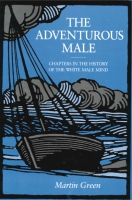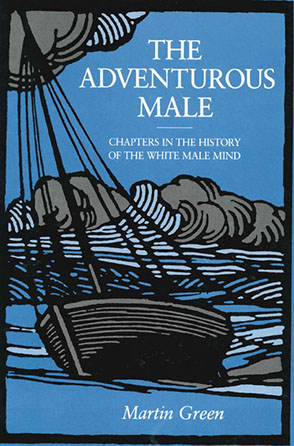The Adventurous Male
Chapters in the History of the White Male Mind
Martin Green
“This tremendously readable and engaging book goes against the grain of our political culture. It is a defense of adventure and of a definition of masculinity stressing the element of adventure in a culture that has become increasingly hostile to these values (though they survive, at least in attenuated form, in our popular culture). It needs to be read not just as a contribution to literary scholarship but as a contribution to public debate about the place of heroism in a democratic society, the prospects for adventure in a post-imperialist world, the relative merits of an aesthetic versus a moral and religious view of experience, the strengths and weaknesses of academic culture and university education, the promise and threat of feminism, and other important issues.”
- Description
- Reviews
- Bio
- Subjects
Green explores the dimensions of both individual and group or political forms of adventure, uncovering the presence of the adventure idea, and tracing its influence, in various kinds of cultural activity and ideology, from exploration, sports, and nationalistic activity to philosophy, politics, science, and economics. In most cases, he finds a cult of energy, risk, and heroism that answers to the excitement of those stories defined as adventures. Moreover, he demonstrates that the cult is linked to masculinity and certain virtues associated with men rather than women. The Adventurous Male will augment ongoing discussion and debate in the realms of both feminism and the men's movement.
“This tremendously readable and engaging book goes against the grain of our political culture. It is a defense of adventure and of a definition of masculinity stressing the element of adventure in a culture that has become increasingly hostile to these values (though they survive, at least in attenuated form, in our popular culture). It needs to be read not just as a contribution to literary scholarship but as a contribution to public debate about the place of heroism in a democratic society, the prospects for adventure in a post-imperialist world, the relative merits of an aesthetic versus a moral and religious view of experience, the strengths and weaknesses of academic culture and university education, the promise and threat of feminism, and other important issues.”
Martin Green is Professor of English at Tufts University. He is the author of many books including The Origins of Nonviolence (1986), The Robinson Crusoe Story (1990), and Seven Types of Adventure Tale (1991), all published by Penn State Press.
Mailing List
Subscribe to our mailing list and be notified about new titles, journals and catalogs.




